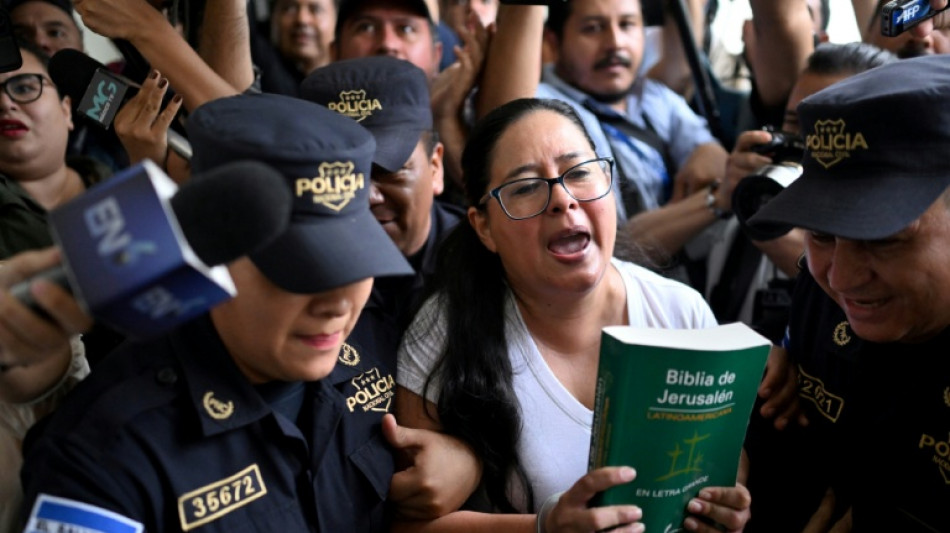
-
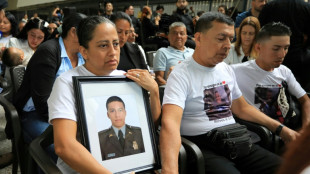 Colombian FARC leaders ordered to make reparations for over 21,000 kidnappings
Colombian FARC leaders ordered to make reparations for over 21,000 kidnappings
-
Peru evacuates 1,400 tourists from Machu Picchu amid protest
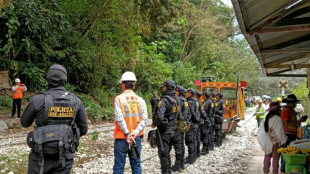
-
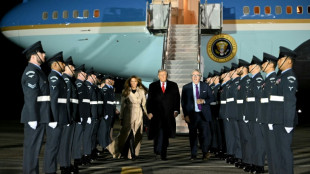 Trump arrives in UK for historic second state visit
Trump arrives in UK for historic second state visit
-
Arsenal, Real Madrid win Champions League openers, Juve snatch dramatic draw

-
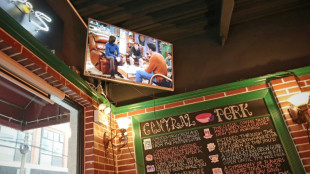 Friends like these: NY to get 'Central Perk' cafe from beloved sitcom
Friends like these: NY to get 'Central Perk' cafe from beloved sitcom
-
Mbappe penalty double gives Real Madrid opening win over Marseille

-
 Juve salvage point against Dortmund with stunning late comeback
Juve salvage point against Dortmund with stunning late comeback
-
Redford's Sundance legacy hailed by filmmakers

-
 Spurs accept Villarreal gift to make winning start in Champions League
Spurs accept Villarreal gift to make winning start in Champions League
-
Trump arrives in Britain for unprecedented second state visit
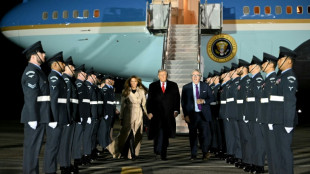
-
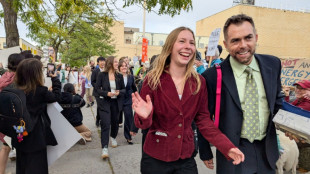 'A better future is possible': Youths sue Trump over climate change
'A better future is possible': Youths sue Trump over climate change
-
Redford's Sundance legacy 'beyond comprehension' for US filmmakers
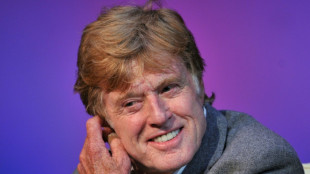
-
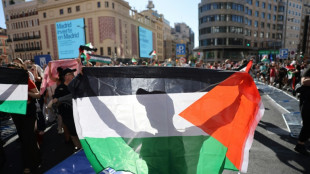 Vuelta protests 'a completely new phenomenon', says Tour de France director
Vuelta protests 'a completely new phenomenon', says Tour de France director
-
Bangladesh beat Afghanistan to stay alive in Asia Cup

-
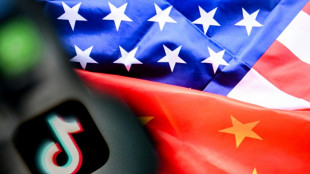 Trump extends delay on US TikTok ban until mid-December
Trump extends delay on US TikTok ban until mid-December
-
YouTube ramps up AI tools for video makers

-
 Arsenal subs snatch win in Bilbao Champions League opener
Arsenal subs snatch win in Bilbao Champions League opener
-
Downton Abbey auction of props and costumes smashes estimates
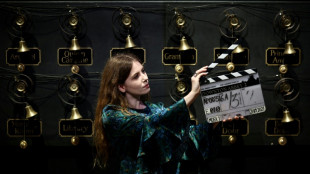
-
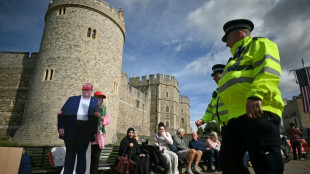 Windsor prepares for global spotlight with Trump state visit
Windsor prepares for global spotlight with Trump state visit
-
Suspect in Charlie Kirk killing charged with murder
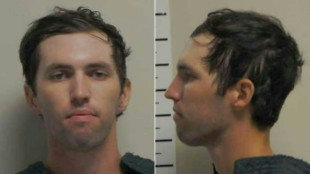
-
 France duo out of Women's Rugby World Cup semi-final as bans upheld
France duo out of Women's Rugby World Cup semi-final as bans upheld
-
Simeone backs Atletico to hurt 'extraordinary' Liverpool
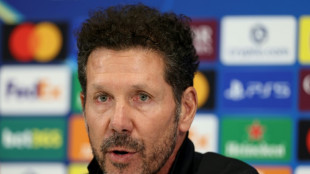
-
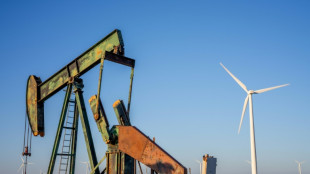 IEA says more oil and gas investment may be needed
IEA says more oil and gas investment may be needed
-
Sabrina Carpenter, Justin Bieber, Karol G to headline Coachella

-
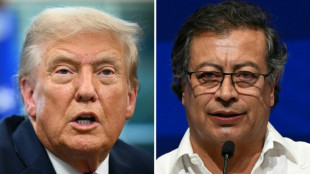 Colombia halts US arms purchases in row over drug fight delisting
Colombia halts US arms purchases in row over drug fight delisting
-
Nestle says chairman Paul Bulcke to step down
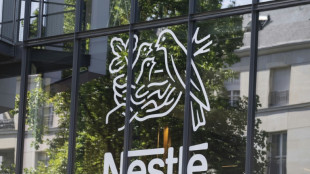
-
 Isak set for Liverpool debut in Atletico Madrid Champions League clash
Isak set for Liverpool debut in Atletico Madrid Champions League clash
-
Malawi votes in economic gloom as two presidents battle for power
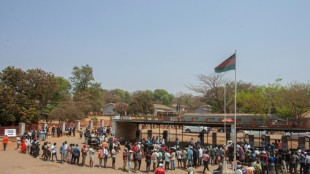
-
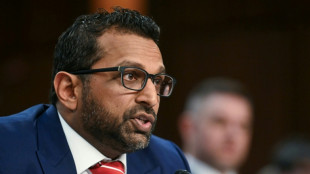 No info in files that Epstein trafficked women to others: FBI chief
No info in files that Epstein trafficked women to others: FBI chief
-
Stocks slip, dollar down as Fed meets on rates
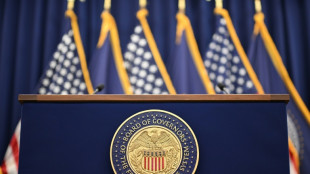
-
 Faith Kipyegon: Supreme Kenyan champion and role model for mothers
Faith Kipyegon: Supreme Kenyan champion and role model for mothers
-
Hollywood giants sue Chinese AI firm over copyright infringement
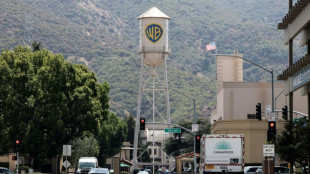
-
 Bayern's Kane keen to rekindle London rivalry against Chelsea
Bayern's Kane keen to rekindle London rivalry against Chelsea
-
Trump sues NYT for $15 bn in latest attack on media

-
 IndyCar reveals 17-race 2026 season with March opening
IndyCar reveals 17-race 2026 season with March opening
-
Trump heads for landmark state visit with 'friend' King Charles
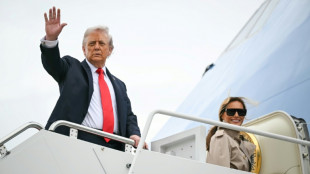
-
 Kipyegon sparkles, Tinch's time away pays off with world gold
Kipyegon sparkles, Tinch's time away pays off with world gold
-
Kerr completes Kiwi world double after Beamish tonic

-
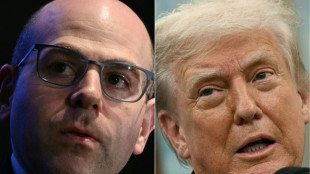 US Fed opens key meeting after Trump aide sworn in as governor
US Fed opens key meeting after Trump aide sworn in as governor
-
Tinch crowns atypical path to top with world hurdles gold

-
 Masters deal with Amazon Prime boosts US TV coverage hours
Masters deal with Amazon Prime boosts US TV coverage hours
-
Thyssenkrupp says India's Jindal Steel makes bid for steel business

-
 Germans turn to health apps as insurers foot the bill
Germans turn to health apps as insurers foot the bill
-
Robert Redford, Hollywood's golden boy with a Midas touch

-
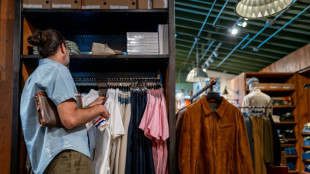 US retail sales beat expectations in August despite tariffs
US retail sales beat expectations in August despite tariffs
-
New Zealand's Kerr wins world men's high jump gold

-
 American Cordell Tinch wins world 110m hurdles gold
American Cordell Tinch wins world 110m hurdles gold
-
Kenya's Kipyegon wins unprecedented fourth women's world 1,500m title
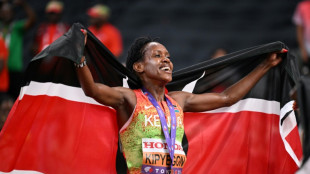
-
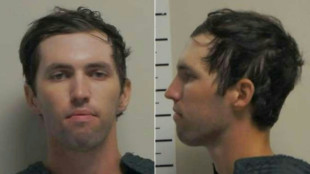 Suspect in Kirk killing to be charged in US court
Suspect in Kirk killing to be charged in US court
-
Cinema legend Robert Redford dead at 89
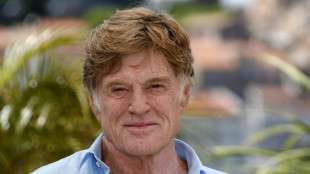

El Salvador rights group says forced out by Bukele 'repression'
A leading rights group investigating corruption in El Salvador said Thursday it had been forced into exile due to "escalating repression" by President Nayib Bukele's administration.
The Cristosal group is a vocal critic of Bukele's controversial anti-crime policies and also provides assistance to families of migrants deported by the United States and imprisoned in El Salvador.
It denounced "harassment," "espionage" and "defamation" by what it called a "dictatorship" being established in El Salvador under Bukele, an ally of US President Donald Trump.
"Faced with increasing repression and the closure of democratic spaces in El Salvador, Cristosal is forced to suspend its operations in El Salvador," its director Noah Bullock told a news conference in Guatemala.
He said that "a repressive apparatus that acts without limits" meant that "we are forced to choose between prison or exile."
The withdrawal follows the arrest in May of the head of Cristosal's anti-corruption unit, Ruth Lopez, who is accused of illicit enrichment, a charge she denies.
In recent months, several other Bukele critics have been arrested in El Salvador.
Amnesty International this month declared Lopez a prisoner of conscience and called for her immediate release.
The activist's arrest was "part of a systematic pattern of criminalization that seeks to silence those who denounce abuses or demand justice and transparency in public administration," Amnesty Secretary General Agnes Callamard said.
A "foreign agents" law means that NGOs must pay a 30 percent tax on the funds they receive.
Cristosal, whose main source of income is donations, called it "an instrument of authoritarian control."
International rights groups reacted with alarm to Cristosal's exit.
"The cost: less justice for victims, weaker oversight of abuses, and fewer spaces for dissent," Juanita Goebertus, Americas director at Human Rights Watch, said on X.
The Washington Office on Latin America advocacy organization expressed its support for Cristosal and other civil society groups "facing harassment and defamation campaigns under Bukele's government."
- Fears of imprisonment -
Cristosal, which had around 30 activists in El Salvador, said the country "is no longer a state governed by the rule of law."
"When exercising freedoms or simply dissenting against power carries consequences, these are clear signs that a dictatorship has taken hold," Bullock said.
While rights groups have criticized Bukele's methods, a dramatic drop in the homicide rate has made him popular at home.
Cristosal helps families of Salvadorans caught up in Bukele's self-declared "war" on gangs, as well as more than 250 Venezuelans deported by Trump's administration, which paid El Salvador to hold them in a notorious high-security facility.
Cristosal said in April that police officers had entered its headquarters to film and photograph the premises and vehicles of journalists invited to a press conference.
The group, founded by Anglican bishops, said it would continue to operate from its offices in Guatemala and Honduras, after a quarter-century presence in El Salvador, to protect the safety of its members.
Thousands of people have been detained under Bukele's state of emergency, often without court orders, the right to phone calls or even to see a lawyer.
"Democratic institutions in El Salvador have disappeared and are under the control of Bukele's authoritarian regime," said Cristosal's head of litigation, Abraham Abrego.
A survey released by Central American University last week showed that six out of 10 Salvadorans fear criticizing the president or his government, as it could lead to "negative consequences," such as arrest.
R.Fischer--VB
